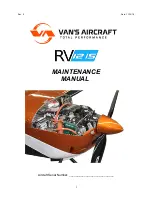
12
The B-line stall is another way to descend rapidly and has a sink rate of approximately
8 m/s. It is suitable where there is an average ascent rate and little wind.
B-line stall
Grasp both of the B-risers at the coloured mark. Pull both of them slowly and evenly
towards your chest until the airflow is gone and the wing goes into a vertical descent
flight mode. The B-risers should then be held in the same position to ensure a gentle
descent.
Starting the
manoeuvre
Check before and during the B-line-stall that the airspace beneath you is free.
Recovery
Return the B-risers to their normal position quickly and evenly. If you put the B-risers
back too slowly, a deep stall or negative spin could occur.
Caution! Accident risk!
The canopy speeds up after the B-risers have been released. Under no circumstances
should you apply the brakes at this time.
Tip
If the paraglider does not speed up immediately because recovery is too slow or for
some other reason, accelerate using the speed system or pull the A-risers forwards.
"Big ears" is another way to descend quickly and has a sink rate of approximately 3 to
5 m/s. The forward speed stays the same. You can use the "big ears" method together
with the speed system. It is suitable for avoiding a dangerous situation where there are
high ascent rates and strong wind.
Big ears
Pull both outer A-risers downwards. You can now descend safely on the stable middle
part of the wing. Steer by weight-shifting The brakes must not be applied during the
manoeuvre, e.g. by wrapping the brakes.
Starting the
manoeuvre
Recovery
Let go of both A-risers. If the ears do not open automatically, assist the opening
process by pumping the brakes.
Caution! Accident risk!
When the technique of "big ears" is used, there is a higher load for the line groups
which are still weight-bearing. Do not fly any extreme manoeuvres with "big ears".
Summary of Contents for Astral 3
Page 2: ...0 ...


































